How English women’s football could become a billion pound industry
Building on the success of the Lionesses won’t be easy but it is eminently possible
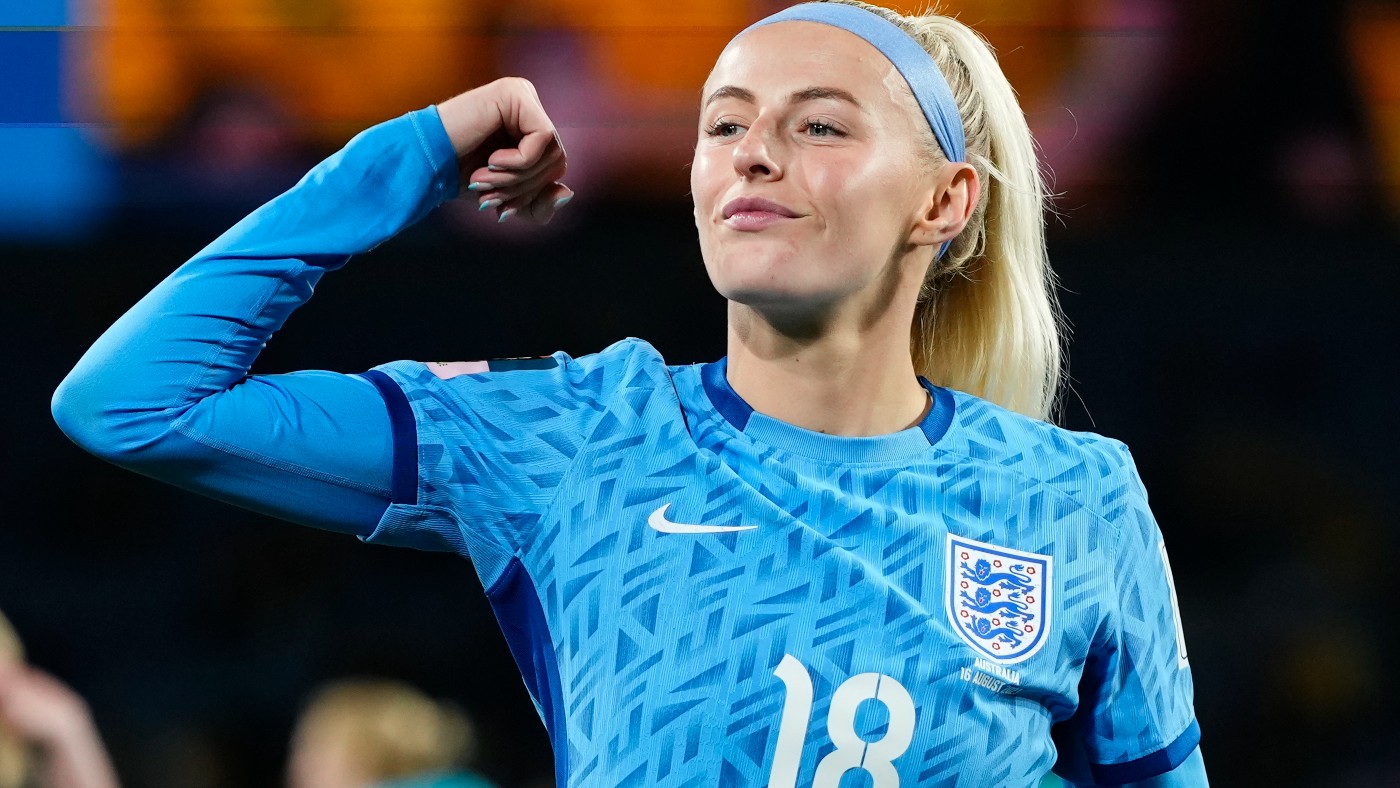
A free daily email with the biggest news stories of the day – and the best features from TheWeek.com
You are now subscribed
Your newsletter sign-up was successful
Christina Philippou, principal lecturer of economics at the University of Portsmouth explains where the money could come from to change the women’s game forever.
A long-awaited official review of women’s football in England sets out ten recommendations designed to transform and develop the sport at every level. The review, which was chaired by former international player Karen Carney, covers everything from playing standards to diversity goals and equal access to sports for girls.
As a whole, its aim is to create a better version of the sport that exists now, with more women and girls playing better football in a healthier environment, and more people watching and enjoying it.
The Week
Escape your echo chamber. Get the facts behind the news, plus analysis from multiple perspectives.

Sign up for The Week's Free Newsletters
From our morning news briefing to a weekly Good News Newsletter, get the best of The Week delivered directly to your inbox.
From our morning news briefing to a weekly Good News Newsletter, get the best of The Week delivered directly to your inbox.
These kind of changes will come at a price. But Carney predicts it will be a price worth paying, and could turn women’s football in England into a “billion pound industry”.
Those costs though are considerable (and something I looked at as an adviser to the review on finances). Even at the grassroots level of women’s football, building and maintaining good quality pitches and changing rooms is an expensive undertaking.
Then at the top level of English football, the report lists some of the costs that will be required in the Women’s Super League (WSL) (the equivalent to the men’s Premier League) and the Women’s Championship to raise standards and encourage more girls to get involved. These include a salary floor for players, mental and physical health provisions, and dedicated marketing resources.
For each WSL club, those costs are estimated at an extra annual spend of £441,000. Yet according to publicly available accounts, the average income for those clubs was £1.9m last year. For some it was as low as £101,000. So where will they find the money?
A free daily email with the biggest news stories of the day – and the best features from TheWeek.com
The good news is that there are plenty of signs of growing income in the women’s game. And the review’s recommendations around professionalism, broadcasting, and fan engagement will help to use that extra income effectively.
As with the men’s game, football income tends to come from three main sources: match-day (tickets and hospitality), commercial (sponsorship), and broadcasting. Match-day is already growing, and the 2022-23 season has seen record attendance for the WSL, Women’s Champions League, and the Women’s FA Cup.
But maintaining this level of interest itself costs money, because healthy match-day attendance comes from good fan engagement. Better stadiums, dedicated marketing teams, and “support liaison officers” to engage with fans are all recommended in the review.
It also encourages women’s teams affiliated with men’s Premier League sides to play in the club’s main stadium. Arsenal’s women’s team for example, currently play some of their matches at the Emirates, which seats 60,704 spectators, and some at Meadow Park, which holds 4,500.
Not all matches can be held in huge stadiums though, as running costs are high and a full stadium is widely considered to be more atmospheric. But the grander facilities tend to have better facilities for fans, are more accessible by public transport and encourage club supporters to watch the women’s teams.
This is where the recommended marketing teams come in, because big stadiums require large crowds to be effective, and people need to know about upcoming matches if they are going to consider buying tickets.
Other fans who choose to watch at home are behind one of the other big sources of football income: broadcasting. The current deal for the WSL was a groundbreaking one in terms of coverage (up to 66 matches) and income (£8 million a year). But more will be required to cover the costs recommended in the review.
Show me the money
The issue here was highlighted in the recent dispute between Fifa and broadcasters over showing the 2023 Women’s World Cup. Even broadcasters in European countries with strong support for women’s football were offering less than 10% of what they were willing to pay to show the men’s World Cup.
This was despite encouraging signs for televising games. There was a 9% increase in WSL viewership in 2022-23 compared to the previous season – a strong rise given that some of it is only available on subscription TV. And streaming service DAZN reported a 42% increase in viewership for women’s Champion’s League matches.
Commercial income is the third area where the money can grow. Sponsorship income is up and there is evidence of positive impact on brands, such as Barclay’s title sponsorship of the WSL and the Women’s Championship and the online beauty brand Il Makiage’s association with Arsenal. This should encourage more brands to invest in women’s football.
The review also addresses the lack of diversity across the women’s game, where research shows that off-pitch roles (club directors for example) are predominantly held by men, and that a number of WSL and Women’s Championship club boards (the decision makers) are male only.
This is especially important as affiliated teams now make up most of the top two tiers of English women’s football. Research shows that greater diversity is linked to better finances, so addressing this imbalance should also help with money.
Because ultimately money is what women’s football – not just in England – badly needs. The review has good ideas for raising standards, improving participation, and attracting more fans. But all of them depend on two urgent goals: investment and faith in the future of the sport.
Christina Philippou, Principal Lecturer, Accounting, Economics and Finance, University of Portsmouth
This article is republished from The Conversation under a Creative Commons license. Read the original article.
-
 Why are election experts taking Trump’s midterm threats seriously?
Why are election experts taking Trump’s midterm threats seriously?IN THE SPOTLIGHT As the president muses about polling place deployments and a centralized electoral system aimed at one-party control, lawmakers are taking this administration at its word
-
 ‘Restaurateurs have become millionaires’
‘Restaurateurs have become millionaires’Instant Opinion Opinion, comment and editorials of the day
-
 Earth is rapidly approaching a ‘hothouse’ trajectory of warming
Earth is rapidly approaching a ‘hothouse’ trajectory of warmingThe explainer It may become impossible to fix
-
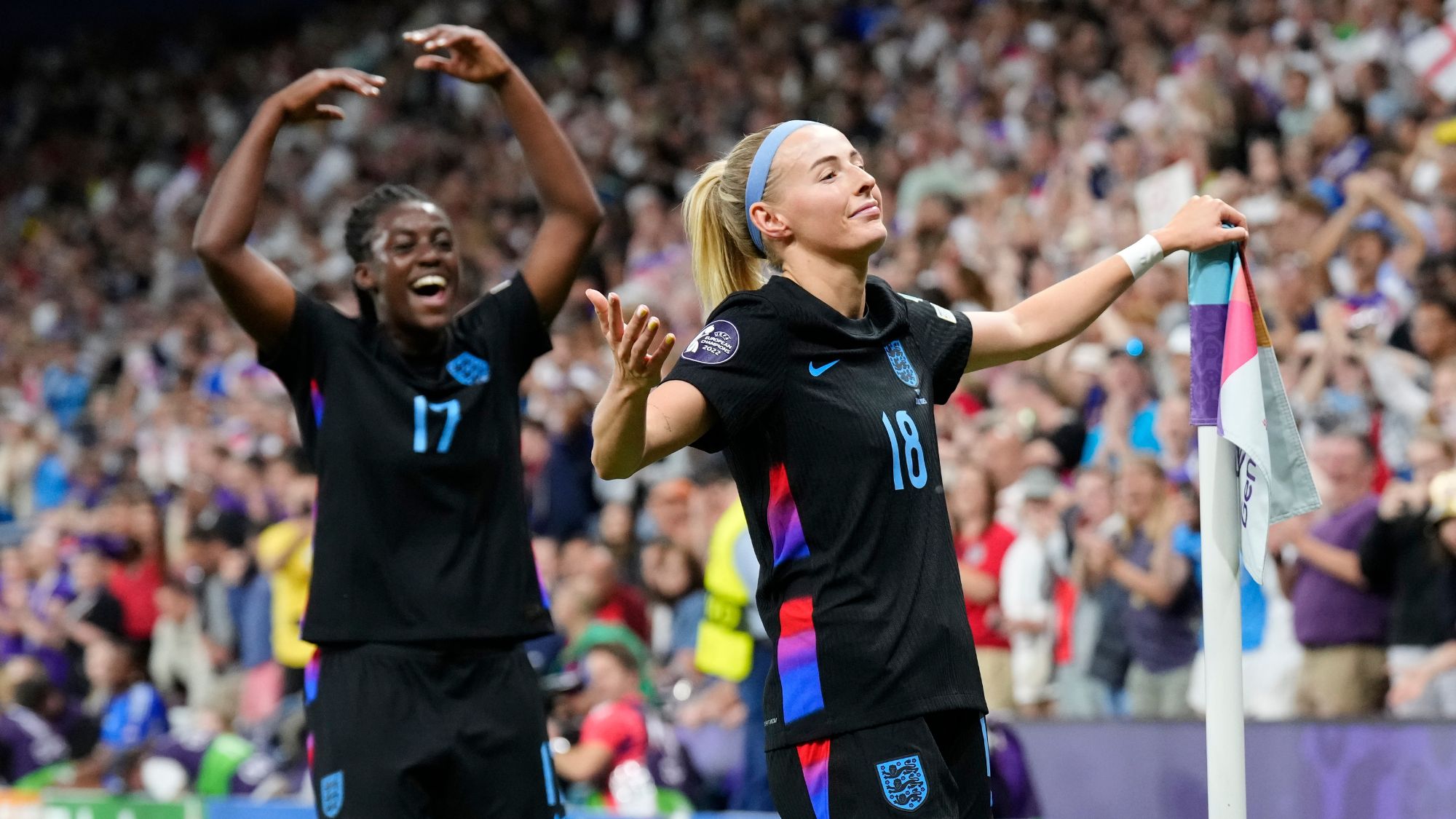 Crisis? What crisis? How Lionesses made the Euros final against the odds
Crisis? What crisis? How Lionesses made the Euros final against the oddsAmid injuries and questions about form, England's women are one step away from glory
-
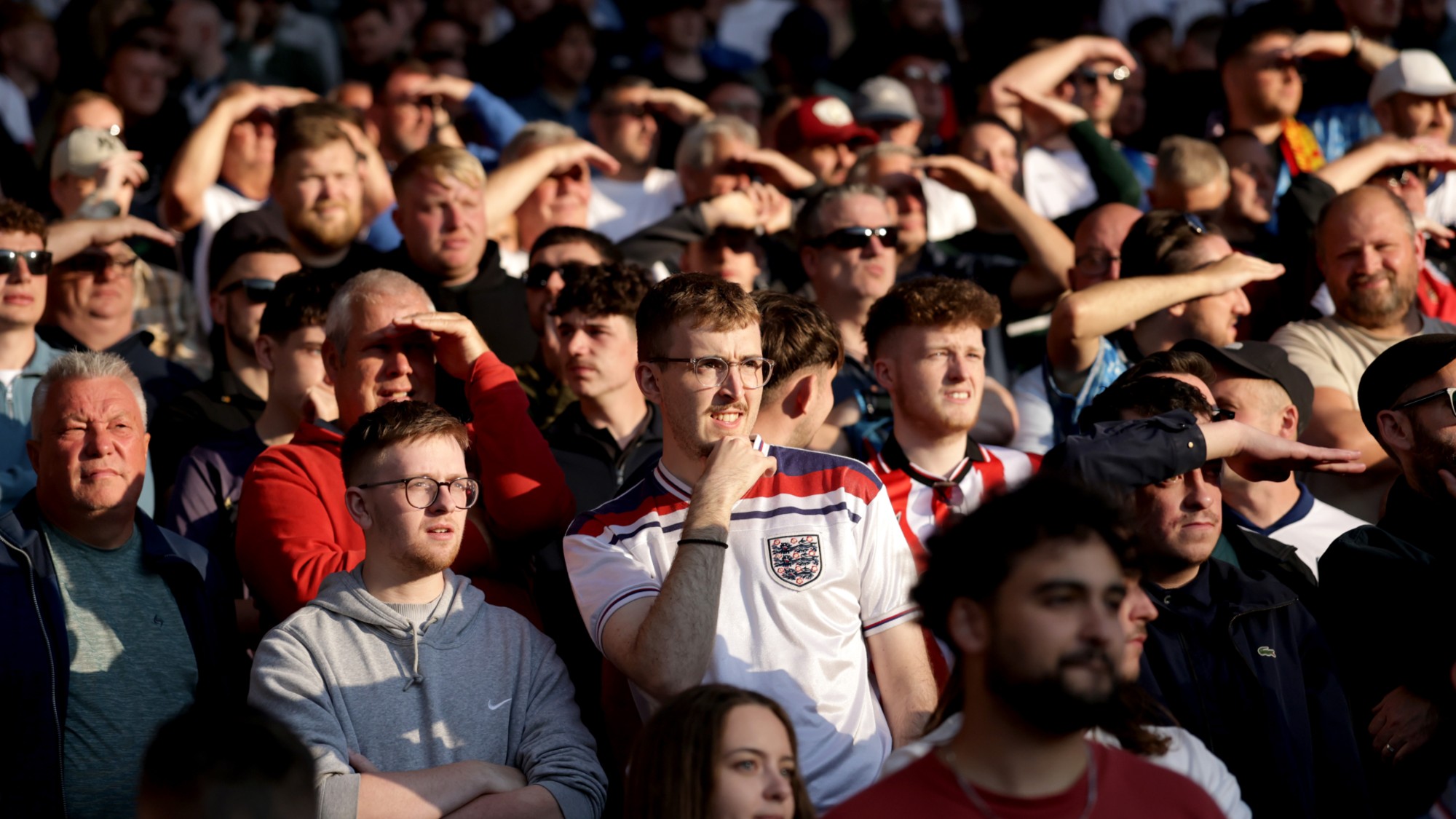 World Cup 2026: uncertainty reigns with one year to go
World Cup 2026: uncertainty reigns with one year to goIn the Spotlight US-hosted Fifa tournament has to navigate Trump's travel bans, logistical headaches and an exhausting expanded format
-
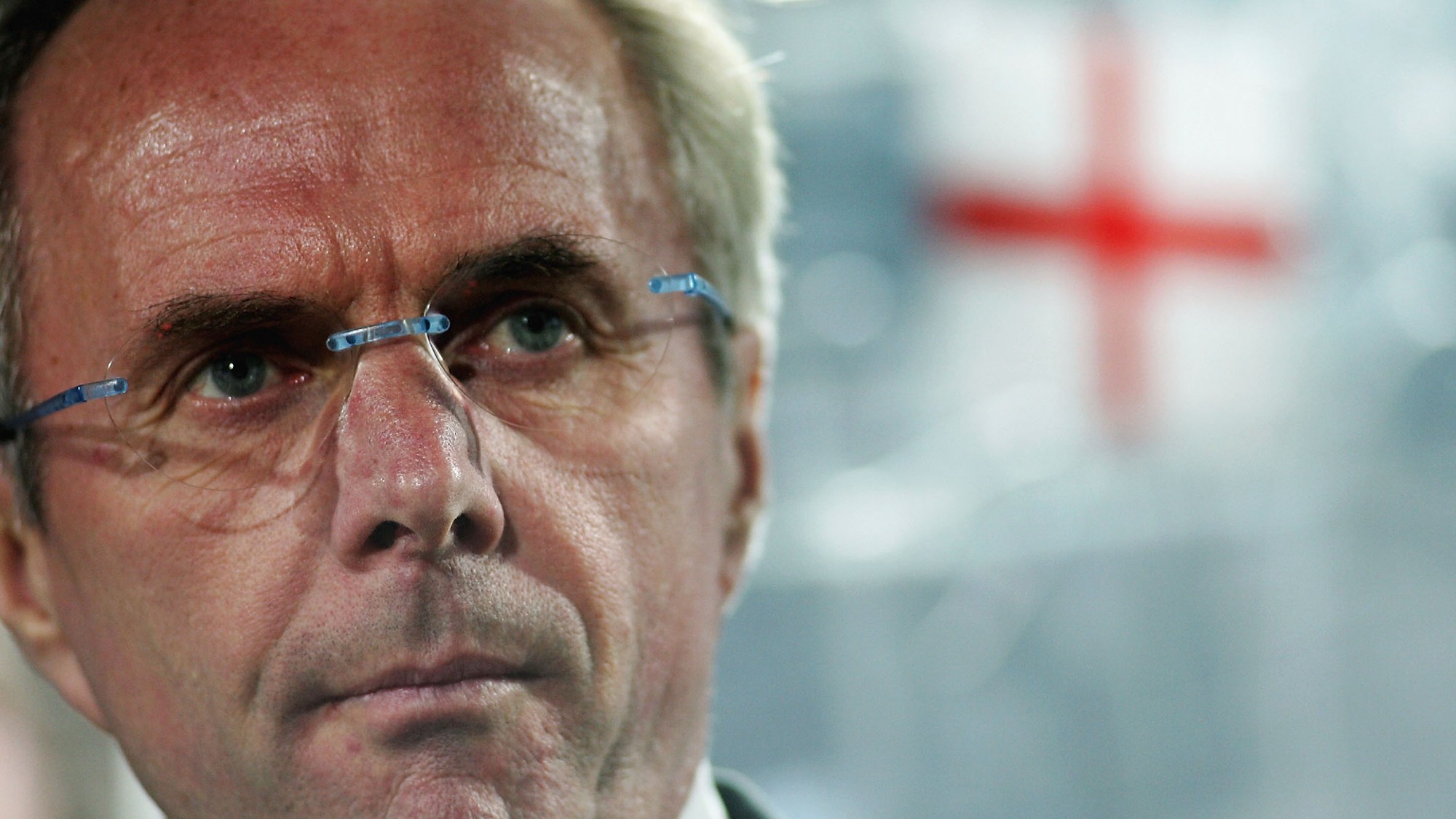 The wit and wisdom of Sven-Göran Eriksson
The wit and wisdom of Sven-Göran ErikssonIn Depth The first foreign coach to manage England on football, life and death
-
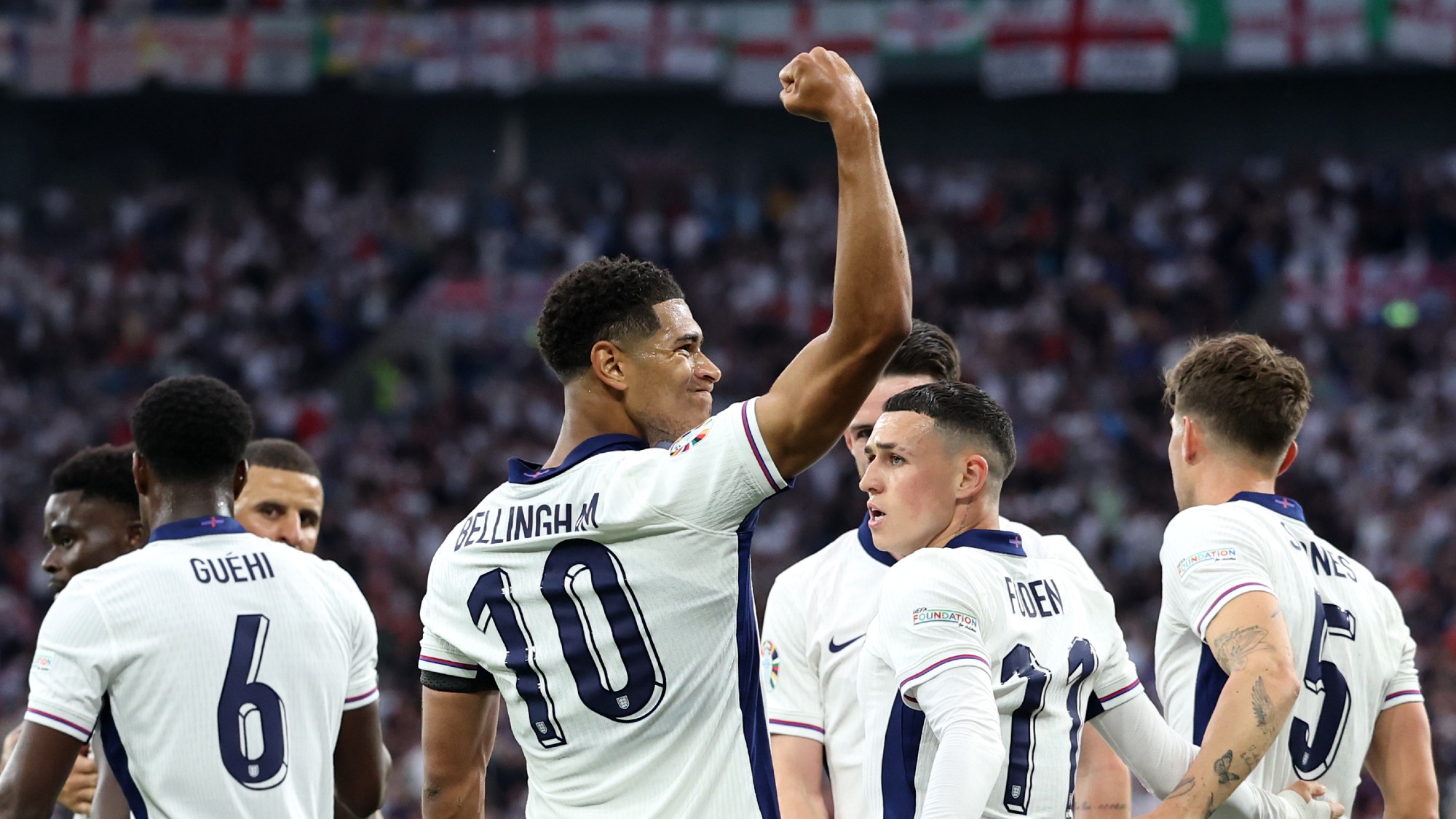 Can England's Euros team hold their nerve?
Can England's Euros team hold their nerve?Today's Big Question Three Lions' 'lopsided' opening win over Serbia raises more questions than it answers
-
 The England kit: a furore over the flag
The England kit: a furore over the flagIn the Spotlight Nike's redesign of the St George's Cross on the collar of the English national team's shirt has caused controversy
-
 WSL takeover: a new era for women's football?
WSL takeover: a new era for women's football?Under the radar Split from governing body comes in wake of record crowds, TV audiences and revenue in the women's game
-
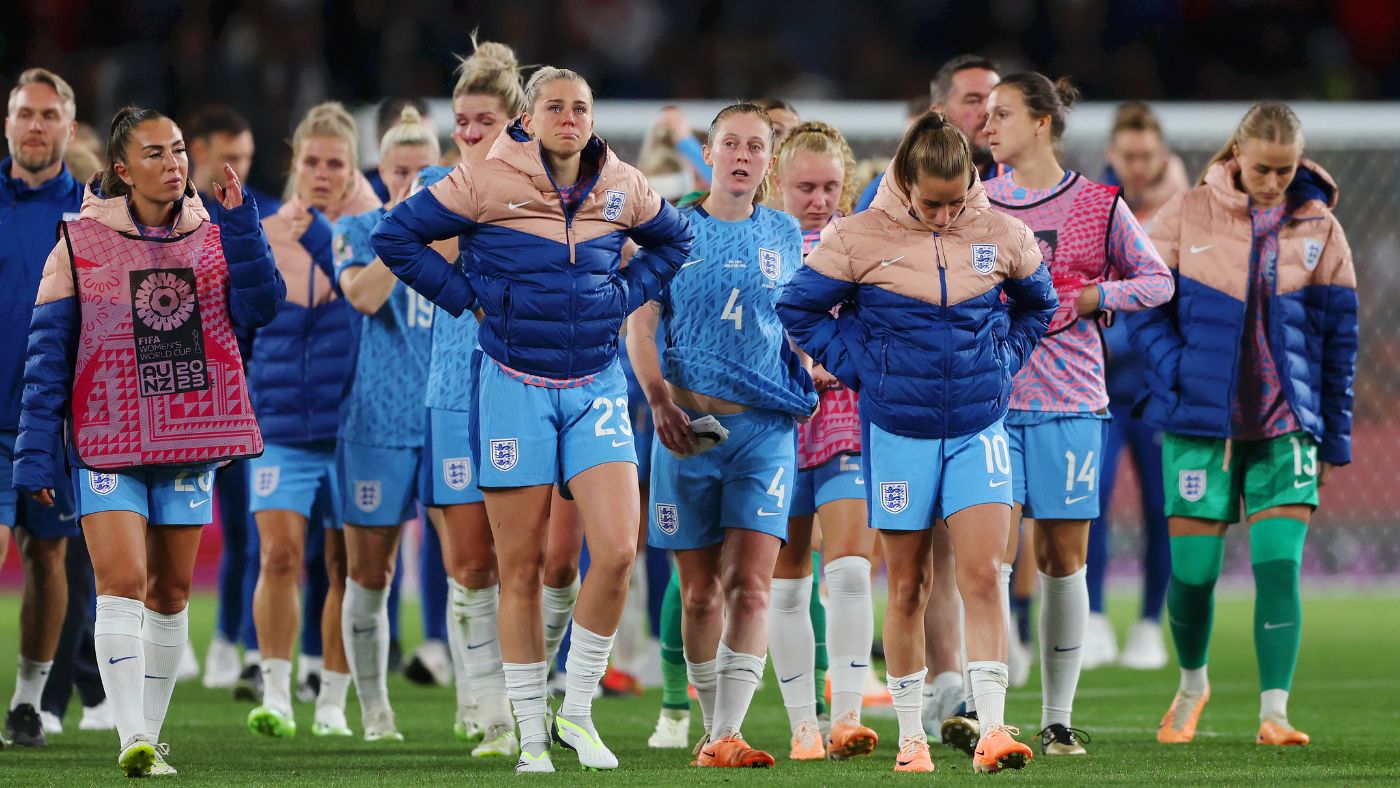 Lionesses will have regrets but their legacy can be ‘incredible’
Lionesses will have regrets but their legacy can be ‘incredible’feature England stars return home after heartbreaking Women’s World Cup final loss to Spain
-
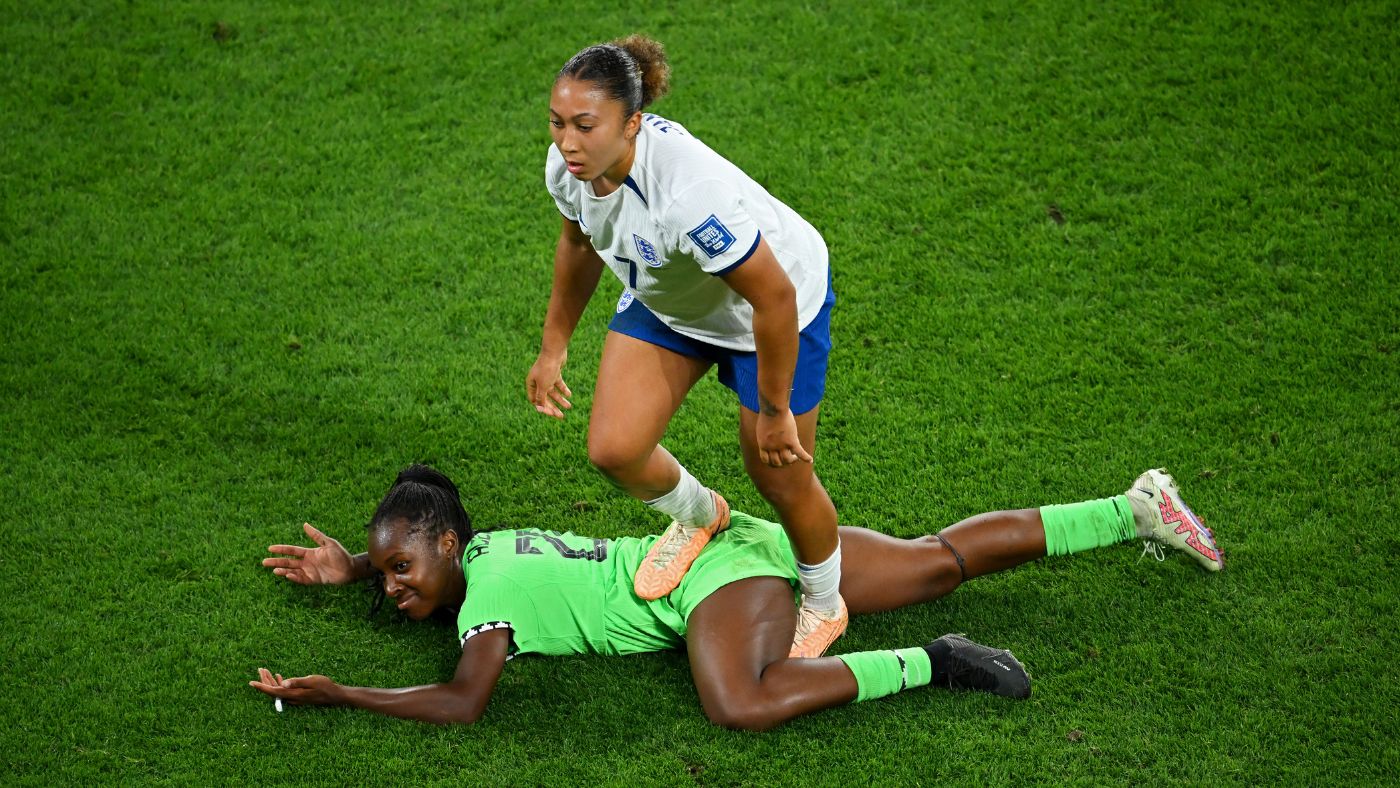 Lionesses dig deep after Lauren James’s ‘Beckham-esque’ red card
Lionesses dig deep after Lauren James’s ‘Beckham-esque’ red cardfeature England reach the Women’s World Cup quarter-finals after a 4-2 win on penalties against Nigeria